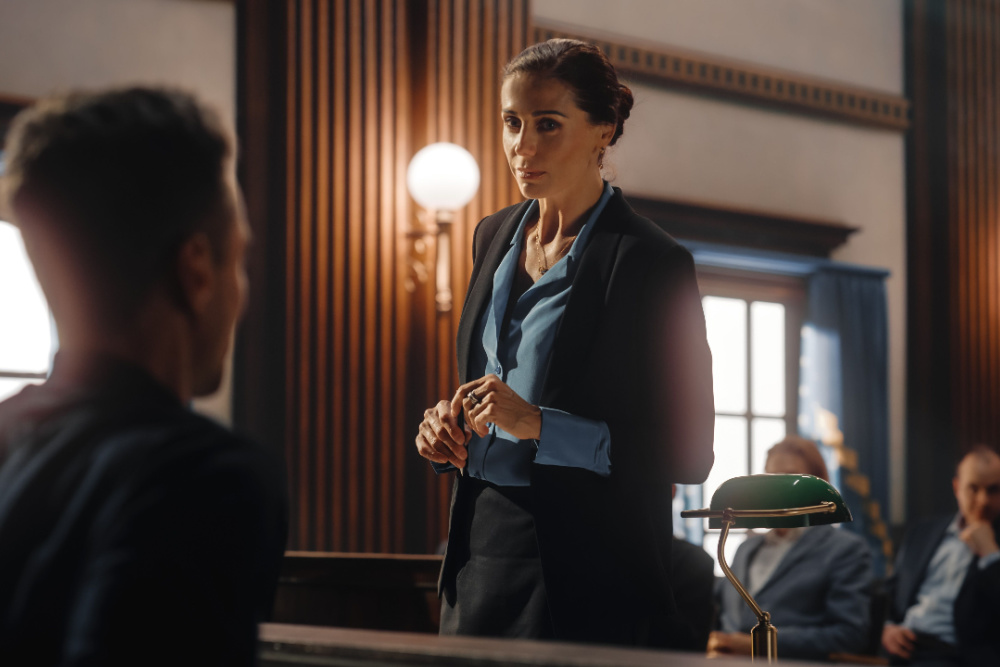
Cross-examining a witness in court is a critical aspect of any trial. As an attorney, it is your opportunity to challenge the credibility, reliability, and accuracy of the testimony presented by the witness. By asking pointed questions and exploring potential biases, motivations, or inconsistencies in the witness’s statements, cross-examination can expose weaknesses in their testimony and ultimately undermine the opposing party’s case.
Additionally, cross-examination can help to elicit information that was not previously disclosed during direct examination, and can also be used to support your own arguments and theories of the case. Effective cross-examination requires careful preparation, a deep understanding of the case law and facts, and strong questioning skills. It is a powerful tool in any attorney’s arsenal, and can significantly impact the outcome of a trial.
Preparing for Cross-Examination
The first step in any successful cross-examination is to prepare adequately beforehand. This means researching the case or issue at hand and familiarizing yourself with the witness you will be questioning. It’s essential to identify any potential weaknesses or biases in the witness’s testimony and to determine which areas of their story are most likely to be challenged during cross-examination. When possible, conducting a pre-trial interview with the witness can also be helpful. This can help you better understand their story and better anticipate how they may respond when questioned in court.
Establishing Credibility & Presenting Evidence
The key to effectively cross-examining witnesses is to establish credibility while simultaneously presenting evidence that supports your position or refutes the other side’s argument. To do this, you must ensure that all questions are relevant and appropriate for the court to consider. Additionally, you must remain respectful and professional during the process by avoiding personal attacks on the witness or other attorneys. You can also use evidence, such as documents or photographs, to support your questions if necessary.
Avoiding Leading Questions
During the cross-examination of a witness, it’s important to avoid leading questions whenever possible. A leading question implies an answer in its phrasing and should be avoided to ensure fairness and accuracy in court proceedings. For example, instead of asking, “Are you aware that the defendant was speeding when they struck the victim?” it would be more appropriate to phrase this query as “What do you know about the speed of the defendant’s vehicle when they struck the victim?”.
Identifying Inconsistencies & Conflicting Statements
In addition to avoiding leading questions, looking for inconsistencies or conflicting statements in a witness’s testimony is essential. This can be done by having them review previous statements that they have made and gently pressing them on any discrepancies. However, it is vital to note that while you should strive to identify any issues in the witness’s story, this is not an opportunity to badger the witness or make personal attacks. These actions could backfire and ultimately weaken your case instead of strengthening it.
Making Objections
When necessary, attorneys must also be prepared to make objections on behalf of either side during a cross-examination. This can be done when an attorney asks an irrelevant, overly broad, or potentially prejudicial question. It’s important to research the applicable rules of evidence beforehand to ensure that any objections made are valid and appropriate for the court to consider.
Summarizing & Concluding the Cross-Examination
Once all questions have been asked and answered, you, as an attorney, must take care to properly summarize and conclude the witness’s testimony. This may involve repeating certain key facts or points from the interview as well as ensuring that all documents used throughout the proceedings have been accurately recorded and properly filed. Additionally, you should be sure to thank the witness for their time and help before concluding the cross-examination process.
Cross-examining witnesses in court can be a challenging task, but with proper preparation and attention to detail, trial attorneys can ensure that all proceedings run as smoothly as possible. By understanding how to establish credibility, identify inconsistencies, avoid leading questions, make objections, and summarize and conclude a cross-examination, you will have all the tools you need to conduct successful legal proceedings effectively.
So if you’re a trial attorney looking to sharpen your skills and become an expert in cross-examination, remember these key points: prepare adequately beforehand; establish credibility while presenting evidence; avoid leading questions when possible; make objections as necessary; and be sure to summarize and conclude the cross-examination properly.
Are you looking for a certified court reporter in New Jersey? If so, contact us today.
